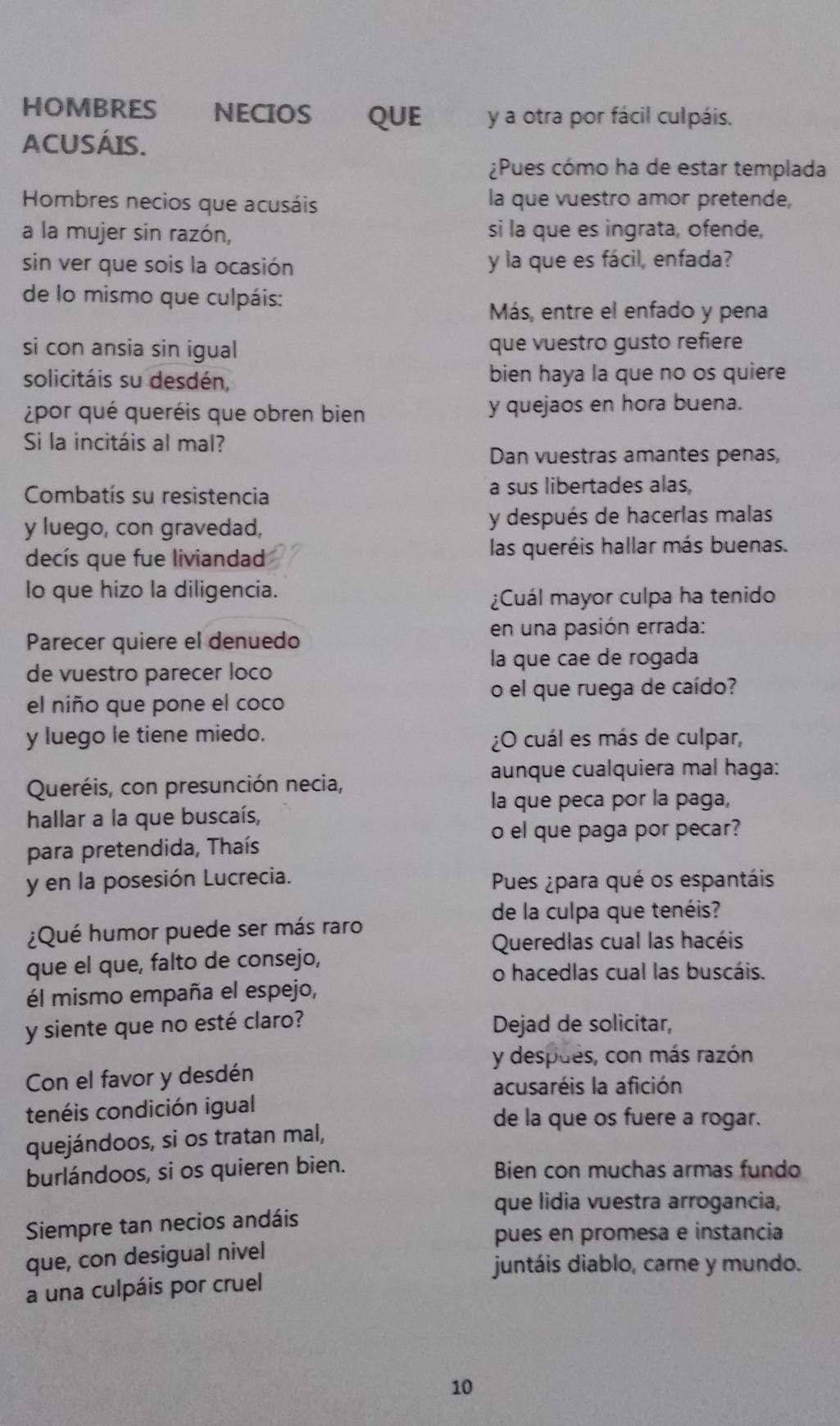Sor Juana Inés de la Cruz’s “Hombres Necios Que Acusáis” (You Foolish Men Who Accuse) stands as a powerful 17th-century indictment of male hypocrisy. This satirical poem, a cornerstone of feminist literature, challenges the pervasive double standards surrounding female sexuality and behavior. Its enduring relevance continues to spark debate on gender roles, power dynamics, and the ongoing struggle for equality.
Deconstructing the Double Standard
Sor Juana’s poem directly confronts the hypocrisy of men who criticize women for actions they themselves encourage. She argues that men create the very conditions for the behaviors they condemn, highlighting a double standard where men are lauded for sexual conquests while women are vilified for the same. This central theme resonates throughout the poem, punctuated by her sharp wit and incisive observations.
One of the most potent examples of this critique can be found in the lines, “Si con ansia sin igual solicitáis su desdén, ¿por qué queréis que obren bien si las incitáis al mal?” (If with unparalleled eagerness you solicit their disdain, why do you want them to behave well if you incite them to evil?) This rhetorical question, characteristic of Sor Juana’s style, lays bare the illogical nature of male accusations. She forces the reader to confront the inherent contradiction in men’s expectations of women.
Sor Juana’s Literary Prowess
Beyond its feminist critique, “Hombres Necios Que Acusáis” showcases Sor Juana’s mastery of Baroque literary techniques. The poem is rich with ornate language, elaborate metaphors, and biting satire. Her skillful use of irony and rhetorical questions further underscores the absurdity of the double standards she exposes.
The poem’s structure, written in redondillas (four-line stanzas with eight syllables each), adds to its impact. This form likely enhanced the poem’s memorability and may have facilitated its dissemination in a time when written texts were less accessible. This musicality probably contributed to the poem’s enduring popularity.
Sor Juana also incorporates classical allusions, referencing figures from Greek mythology such as Thais (a courtesan) and Lucretia (a symbol of chastity). These contrasting archetypes serve to emphasize the impossible double bind women faced – judged and condemned regardless of their choices. For additional historical context, explore how Theseus united the land of Attica.
A Voice in the Convent, an Echo Through Time
Written in 17th-century Mexico, a deeply patriarchal society with limited opportunities for women, “Hombres Necios Que Acusáis” represents a bold challenge to social norms. Sor Juana’s choice to enter a convent, a path that paradoxically allowed her to pursue intellectual pursuits, underscores the restrictions faced by women in academia. Her courageous critique, penned within the confines of the convent walls, became a groundbreaking piece of feminist literature.
The poem’s continued resonance lies in its timeless themes. The issues of gender inequality, double standards, and victim-blaming remain sadly relevant in the 21st century. The poem’s insights connect with contemporary movements like #MeToo, providing a historical context for ongoing discussions about sexual harassment and assault. It suggests that the struggle for equality requires ongoing vigilance and a commitment to challenging ingrained societal biases.
Sor Juana’s Enduring Legacy
“Hombres Necios Que Acusáis” cemented Sor Juana’s legacy as a proto-feminist icon and a champion of women’s intellectual and social freedom. Her work continues to inspire generations of writers, scholars, and activists. The poem remains a powerful and relevant text in contemporary Latin American culture, prompting ongoing discussions and interpretations.
Further Explorations
While scholarly consensus recognizes the poem’s core themes, there is always room for nuanced interpretations. Some scholars suggest that Sor Juana may have been engaging in a subtle critique of the entire societal structure that confined women. Others propose that her use of religious language might indicate a sophisticated theological debate, questioning established doctrines.
Further avenues of exploration include:
- Psychological motivations: Examining the potential for cognitive dissonance or projection in the male behaviors criticized in the poem.
- Cross-cultural comparisons: Comparing “Hombres Necios Que Acusáis” to other feminist texts across cultures and time periods.
- The power of language: Analyzing Sor Juana’s strategic use of rhetoric to subvert patriarchal norms.
- Historical reception: Investigating how the poem was received by different audiences throughout history.
Ongoing research continues to illuminate Sor Juana’s life and work. While we can’t be entirely certain of her intentions, the power and impact of her words are undeniable. “Hombres Necios Que Acusáis” serves as a timeless reminder of the need to challenge injustice and strive for a more equitable world.
- Revolution Space: Disruptive Ion Propulsion Transforming Satellites - April 24, 2025
- Race Through Space: Fun Family Game for Kids - April 24, 2025
- Unlocking the Universe: reading about stars 6th grade Guide - April 24, 2025
















